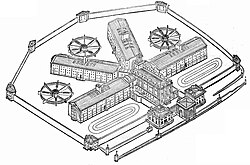Correlates of crime

Let's pretend you're playing detective and trying to figure out why someone did something wrong, like breaking a toy. In the same way, when we're trying to figure out why people commit crimes, we look for things that are related or connected to crime. These things are called "correlates of crime."
Think of it like this: you might notice that, every time your friend eats too much candy, they get a stomachache. So you could say there is a "correlate" between eating too much candy and getting a stomachache, because they always seem to happen together.
When scientists study crime, they look for things that often happen with crime - things like poverty, addiction, or problems in someone's family. These are "correlates" of crime, because they're often connected to someone committing a crime. But it's still not totally clear why someone might do something wrong just because they're poor, for example - there's still a lot to learn about why people do things like break toys or commit crimes.
Think of it like this: you might notice that, every time your friend eats too much candy, they get a stomachache. So you could say there is a "correlate" between eating too much candy and getting a stomachache, because they always seem to happen together.
When scientists study crime, they look for things that often happen with crime - things like poverty, addiction, or problems in someone's family. These are "correlates" of crime, because they're often connected to someone committing a crime. But it's still not totally clear why someone might do something wrong just because they're poor, for example - there's still a lot to learn about why people do things like break toys or commit crimes.
Related topics others have asked about:
